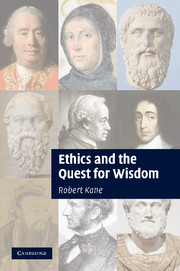Book contents
- Frontmatter
- Contents
- Acknowledgements
- 1 Introduction: pluralism and uncertainty
- 2 Openness
- 3 The retreat
- 4 The moral sphere
- 5 Fact and value
- 6 Value experiments
- 7 Virtues, excellences and forms of life
- 8 The fourth dimension
- 9 Aspiration
- 10 Wisdom
- 11 Objective worth
- 12 The Bach crystals
- 13 Human flourishing
- 14 The Faust legend and the mosaic
- 15 The good and the right (I): intuitionism, Kantianism
- 16 The good and the right (II): utilitarianism, consequentialism
- 17 The good and the right (III): contractualism
- 18 Politics, public morality and law: justice, care and virtue
- References
- Index
15 - The good and the right (I): intuitionism, Kantianism
Published online by Cambridge University Press: 07 September 2010
- Frontmatter
- Contents
- Acknowledgements
- 1 Introduction: pluralism and uncertainty
- 2 Openness
- 3 The retreat
- 4 The moral sphere
- 5 Fact and value
- 6 Value experiments
- 7 Virtues, excellences and forms of life
- 8 The fourth dimension
- 9 Aspiration
- 10 Wisdom
- 11 Objective worth
- 12 The Bach crystals
- 13 Human flourishing
- 14 The Faust legend and the mosaic
- 15 The good and the right (I): intuitionism, Kantianism
- 16 The good and the right (II): utilitarianism, consequentialism
- 17 The good and the right (III): contractualism
- 18 Politics, public morality and law: justice, care and virtue
- References
- Index
Summary
TRANSITION AND REVIEW: THE MST FORMULA
In the next three chapters, I compare the merits of the theory developed in the preceding chapters to some alternative contemporary normative ethical theories. This chapter considers intuitionist and Kantian approaches to ethics, Chapter 16, utilitarian and consequentialist theories, and Chapter 17, contractualist theories. Other approaches to ethics, including virtue ethics and feminist views, will be more briefly considered in the final chapter, which deals with the implications of the moral theory for social and applied ethics, political philosophy, law and moral education. This chapter begins with a brief review of the theory.
The ethical view developed in the preceding fourteen chapters may be described as a “moral sphere theory” of the right (or right action) supported by a “dimensional theory” of the good (or value). Since a convenient name is needed for the entire view, I will refer to it hereafter as the “moral sphere theory” of the good and the right (or MST). This designation will be used more regularly from this point onward. One might express the view in a formula that oversimplifies a bit and requires fleshing out, but captures its spirit:
(The MST Formula) “Strive to lead a good life that is objectively worthy of being lived and strive thereby to realize goods by virtue of the living of such a life that are objectively worthy of being realized.”
- Type
- Chapter
- Information
- Ethics and the Quest for Wisdom , pp. 171 - 195Publisher: Cambridge University PressPrint publication year: 2010



